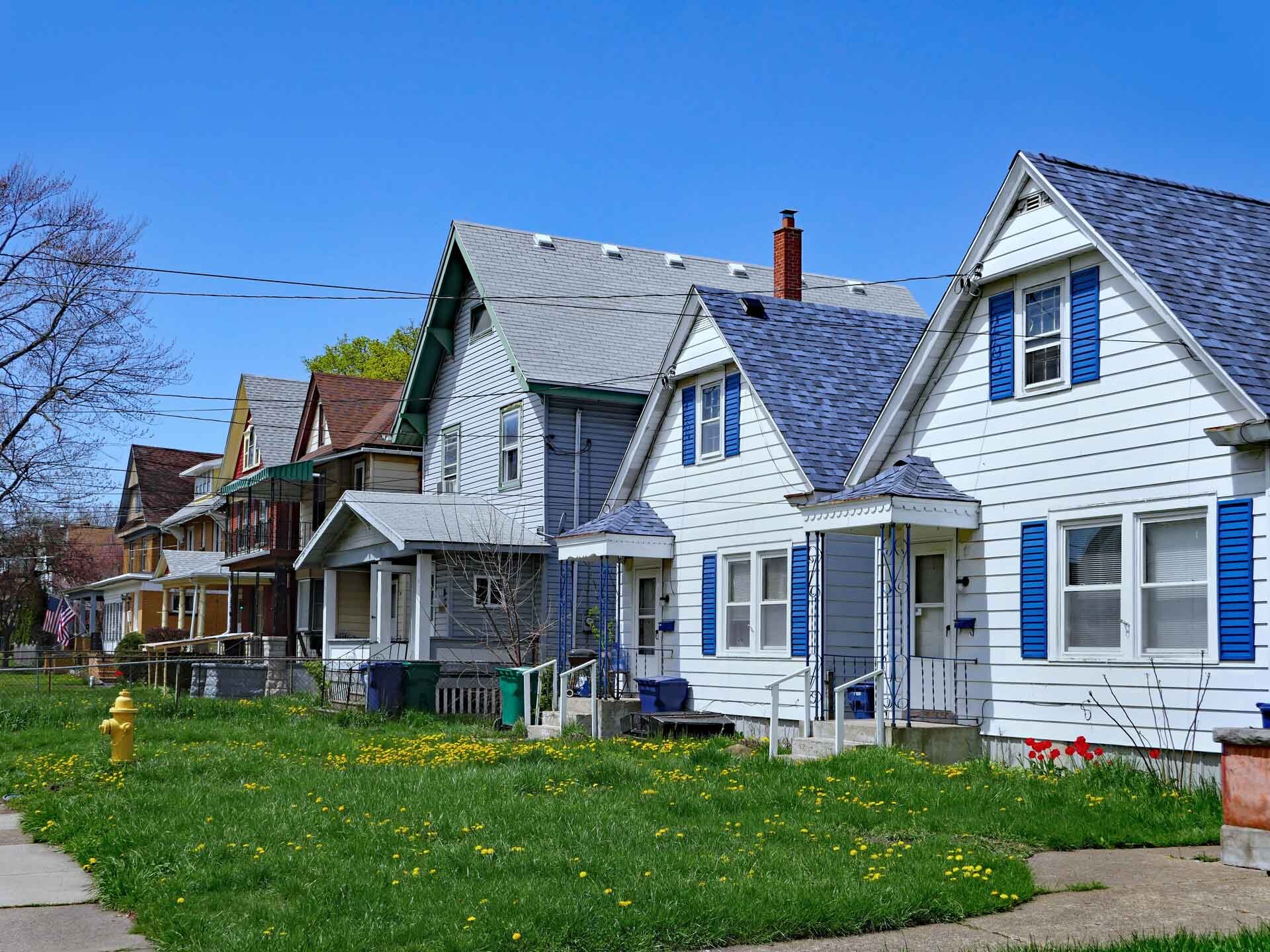Can I Sell My Home if its in foreclosure in Wisconsin? Foreclosure occurs when a homeowner can no longer keep up with mortgage payments and cannot catch up on missed amounts. Since a mortgage is a formal contract between you and your lender, once you default, the lender has the right to sell the property to recover what you owe. This leaves homeowners vulnerable to eviction and significant credit damage.
No one wants to receive a foreclosure notice, yet a nationwide study found that close to one million Americans worried about losing their homes (U.S. Census Bureau Household Pulse Survey, July 27–August 8, 2022). Foreclosure can develop from all sorts of life changes, such as:
- Job loss or reduced income
- Divorce or death of a spouse
- Mounting debt from credit cards or medical bills
- Relocating before managing to sell the home
- Destruction from natural disasters
Kustom Property Solutions, a local business based in Wisconsin, has built its services around helping homeowners with distressed properties. They buy houses with cash and can often speed up what would otherwise be a drawn-out selling process, avoiding extra fees or uncertainty tied to traditional real estate methods.
What is Foreclosure?
Foreclosure is a legal course of action your lender initiates when mortgage payments remain overdue for too long. Suppose you or your spouse loses a job. The bills still pile up, but the money to cover them simply isn’t there. Even if you find work later, the accumulated debt may be too large to pay off quickly, prompting the bank to begin foreclosure. In the final stages, the property can be auctioned, leaving you without a home and a severely impacted credit score.
How Long Do You Have To Get Out of Your House After Foreclosure?
Foreclosure typically unfolds in a series of steps:
- Missed mortgage payments
- Public notice of default
- Formal foreclosure proceedings
- Auction of the home
- Eviction (if the homeowner remains in the property)
The exact duration for each step varies widely by state. You might have 120 days before the formal foreclosure begins, or it could stretch to nine months or more. During this period, the lender usually tries multiple times to contact you—by phone, mail, or email—to discuss your options. Should you fail to find a repayment solution, the lender will set an auction date, after which you can be forced to leave.
The Different Types of Foreclosure
There are two different types of foreclosure you may experience: nonjudicial foreclosure or judicial foreclosure.
What Is Non-Judicial Foreclosure?
Non-judicial foreclosure does not involve taking the homeowner to court. Relying on a “power-of-sale” clause in the deed of trust, the lender can reclaim and sell your Wisconsin property when mortgage defaults continue. Because non-judicial foreclosure avoids legal battles in court, lenders often favor it for being faster and less costly, as long as state law permits it.
What Is Judicial Foreclosure?
By contrast, judicial foreclosure requires the lender to file a lawsuit, formally requesting approval from a judge to foreclose on the home. Once notified of this lawsuit, you have a chance to respond. If you lose or do not reply, the lender wins by default, and the property goes up for a foreclosure sale. If the sale price doesn’t cover your outstanding mortgage, you remain liable for the gap—this shortfall is called a deficiency judgment. Given the expenses and time involved, many lenders see judicial foreclosure as a last resort, yet it remains compulsory in some states where non-judicial foreclosure isn’t allowed.
Get an offer today, sell in a matter of days.
We buy houses in ANY CONDITION in Wisconsin. There are no commissions or fees and no obligation whatsoever. Start below by giving us a bit of information about your property or call (262) 432-1760…
How to Sell Your House Before Foreclosure in Wisconsin
The period before foreclosure concludes is critical. Selling your home swiftly can help you repay your debt and potentially save your credit. Below are some of the most popular ways to do so:

Hire A Real Estate Agent
Most people consider hiring a local real estate agent first. Agents can post your home on the Multiple Listing Service (MLS), manage showings, and provide advice on pricing or staging. This may work well in a conventional setting, but if foreclosure is near, time might not be on your side. A traditional home sale can take weeks to find a buyer—and another month or longer to close—stretching well beyond the schedule you have. Plus, you’ll pay an agent’s commission of roughly 3% to 6% once the sale finalizes, further reducing how much money goes toward your mortgage debt.

Short Sale
If you owe more on your mortgage than your property is worth, you may need a short sale. A short sale requires lender approval to sell the home for less than the total mortgage balance. For instance, if you owe $250,000 but the home can only command $200,000 in the current market, a short sale could be an option. To get the lender’s green light, you must demonstrate financial hardship, typically through documentation like W-2s, medical bills, or proof of long-term unemployment.
Banks often favor short sales over foreclosures because they can still recoup some of their costs without a lengthy legal process. However, a short sale also stays on your credit report, which can make it difficult to obtain future loans or credit cards for years, similar to a foreclosure mark. Additionally, you’ll still be dealing with realtor fees or legal costs for the transaction itself.

Sell Your House AS-IS to A Cash Buyer
When time is tight, selling your home “as-is” to a reliable cash buyer can be the quickest avenue. Cash buyers purchase the property in its current condition—no need to schedule repairs, repaint rooms, or stage the house. Key benefits of selling directly to a cash investor include:
- A closing process that may wrap up in as little as a week
- Zero commissions or fees paid to real estate agents
- No open houses or repeated showings
- No uncertainty tied to a buyer’s loan approval
For homeowners at risk of immediate foreclosure, this speed can make all the difference. Although the cash offer may be somewhat lower than a conventional listing might achieve, you stand to save thousands by bypassing agent commissions, appraisal fees, and possible repairs. More importantly, a rapid sale might let you pay off your lender before the auction date, sparing you the devastating aftermath of foreclosure.
Can You Stop Foreclosure Once it Starts?
Even if the process has begun, there may still be opportunities to halt or at least delay foreclosure proceedings. Consider the following methods:
Pay Off Your Loan & Fees
The most direct solution is to become current on your mortgage. This means paying all missed payments, plus late fees and any related legal expenses. If relatives can help or you have other assets you can sell, raising those funds quickly might resolve the issue before the house goes to auction. Sometimes, lenders will arrange a repayment plan or consider modifying the existing mortgage if they see you are committed to catching up. However, the longer you wait, the fewer options remain.
Declare Bankruptcy
Another option is bankruptcy, which imposes an “automatic stay” that generally pauses foreclosure activities. Yet bankruptcy carries significant downsides. The filing appears on your credit for up to seven years, raising your future borrowing costs and restricting your access to credit cards or loans. There’s also the legal expense and time investment needed to work with a bankruptcy attorney. While declaring bankruptcy can give you a bit more time to figure things out, it is typically a last resort because of its long-term impact on your financial standing.
The Homeowner Affordability and Stability Plan (HASP)
If your current mortgage payment is beyond your ability to pay due to lost income or other financial struggles, the Homeowner Affordability & Stability Plan (HASP) might provide help. This government program allows eligible homeowners to modify their loan terms to reduce monthly obligations. By extending the loan length, lowering the interest rate, or otherwise adjusting the structure, HASP makes payments more manageable. To apply, you’ll need proof of consistent income (even if lower than before) and evidence that you cannot afford the original monthly payment. While not everyone qualifies, it could be a viable path to preserving your home. Apply for the program here to see if you qualify.
Related Articles
5 Ways the Foreclosure of Your Wisconsin House Will Impact You in the Future
What Homeowners in Wisconsin Can Expect During the Foreclosure Process
The Difference Between Pre-Foreclosure and Foreclosure for Homeowners in Wisconsin
How to Sell Your House During Bankruptcy in Wisconsin
Stopping the Foreclosure Process: A Guide for Wisconsin Homeowners
Sell Your House Fast to a Cash Buyer
If you’re searching for a way to circumvent foreclosure entirely, selling swiftly to a reputable cash buyer may be the best solution. By finalizing the transaction before the lender moves to auction, you can often settle your mortgage debt in full, thus preventing the worst credit-related consequences. A few advantages of dealing with a cash buyer are:
- Fast closings: Traditional sales can take a month or more to conclude, while cash transactions may wrap up in mere days if needed.
- No repairs required: Investors who buy as-is seldom require you to fix leaks, address wear and tear, or remodel outdated kitchens and bathrooms.
- Fewer fees: With no realtor commissions and minimal closing costs, more of the sale price goes toward settling what you owe.
- Reduced uncertainty: Mortgage applications can fall through, but cash purchases don’t rely on bank approvals.
You might not get the absolute highest price your home could fetch in a strong seller’s market, yet the speed and simplicity often tip the scales in your favor. You avoid having the property sold off at a bank auction for much less, and you control the timeline, thereby shielding your credit from the devastating blow of a completed foreclosure.
You may not receive your property’s full market value when choosing a direct cash sale, but avoiding agent commissions, drawn-out escrow periods, and repair costs can help offset that difference. More importantly, because a reputable investor can close swiftly, you can often finalize everything before the lender sets a foreclosure auction date. This means you maintain control over the sale price, as opposed to watching your home sold for a fraction of its worth at auction.
Remember, if you wait too long, the bank may move forward with a sale that leaves you with limited or no options. Acting quickly to explore your choices—whether that involves catching up on payments, negotiating with your lender, applying for government-backed relief, or selling to a trusted cash buyer—can provide the best chance of a successful outcome. Ultimately, if you’re wondering, “Can I Sell My Home if its in foreclosure in Wisconsin?,” the answer is often yes. You simply need to move decisively, understand your alternatives, and select the path that preserves the most financial stability and peace of mind for you and your family.
We Buy Houses in Foreclosure & Pre-foreclosure–
Get Your Offer Today!
Does the idea of finally walking away from a property without the storm cloud of foreclosure hanging over your head? Contact a real professional at Kustom Property Solutions to find out more and get a fair cash offer for your property today.

